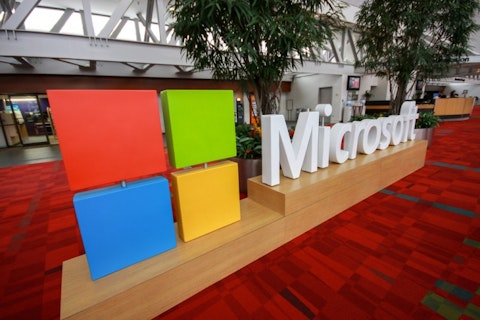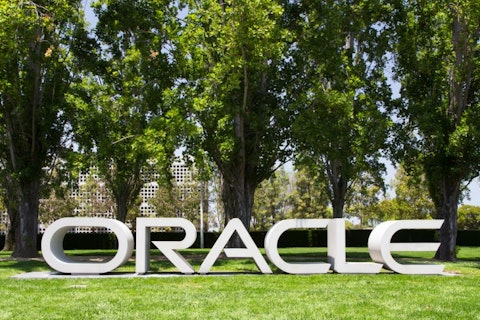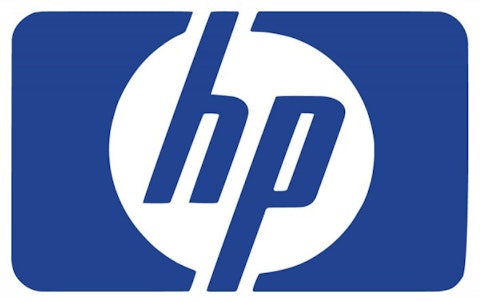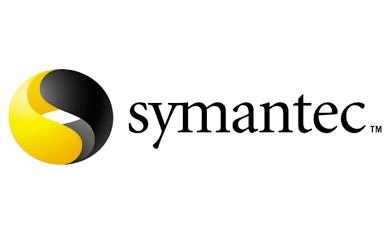What are the biggest tech acquisitions in history?
The tech industry is one of the most prolific out there and considering how much we all rely on the Internet, software and hardware nowadays it’s easy to see why. One way to continue innovating is to purchase other big companies and to create new products that will revolutionize the world, which is why today we’re taking a look at the 10 biggest tech acquisitions ever.

Kritchanut/Shutterstock.com
While some of these acquisitions that happen all the time in the tech world take place because the purchased company is in some kind of financial trouble and looking for a way out, most happen because the buyer sees great potential in the purchased company.
Google — now Alphabet — is one of the companies that is known to make a lot of such acquisitions. In fact, it has shelled out billions over billions of dollars over the years. The top ten acquisitions alone sum up over $24 billion and there are a lot of them whose prices haven’t yet been disclosed. You can check out the top 12 most expensive acquisitions ever made by Google in an article we published a little while ago.
Surprisingly, considering just how often it goes on a shopping spree, Alphabet isn’t the one who made the top acquisition, or one to have made the most expensive purchases in this top ten. In order to create this list we took into account the acquisition price announced by the companies and you can be sure we’re talking billions here. Without further ado, we bring to you 10 biggest tech acquisitions in history.
10. Microsoft buys Skype – $8.5 billion
Back in 2011, Microsoft purchased Skype, a VoIP company created in 2003 that made it possible for people to communicate with one another over the Internet, whether that was via instant messages, video chat or online calls.
Skype was released in 2003 and the first time any interest was shown by a foreign company into the tool was in 2005, when eBay acquired it for $2.6 billion. Four years later, Silver Lake, the Canada Pension Plan Investment Board and Andreessen Horowitz bought 65% of Skype, paying $1.9 billion to eBay in the process.
In 2011, Microsoft stepped in and paid $8.5 billion in the process, with the VoIP tool becoming one of the biggest tools in Microsoft’s arsenal. At the time, Microsoft was looking into making a big move into the IP communications area, although it was also particularly interested in the peer-to-peer video chat option that came with the software.
Nowadays, Skype is one of the most used tools of its kind on the market, not only for personal conversations, but also for business calls and much more. This acquisition was definitely a success.

drserg / Shutterstock.com
9. Oracle buys PeopleSoft – $10.3 billion
Back in 2004, after 18 months of negotiations, Oracle Corp. convinced PeopleSoft they needed to sell for $10.3 billion. The conquest was even sweeter for Oracle’s execs since PeopleSoft Inc. was a rival company.
Not only did they manage to buy the company, but somehow, the talented tech management stayed on too, which is something that doesn’t necessarily happen when rival companies are swallowed up by some big name. Within a year of the acquisition, the PeopleSoft name was done and Oracle started selling the software under its own name.
PeopleSoft created software for human resources, financial management, supply chain, customer relationship and more.

Ken Wolter/shutterstock.com
8. HP buys Autonomy – $11.7 billion
Well, if there ever was a failed acquisition this is it. Autonomy Corporation is a multinational software company created back in 1996. Its business revolved around analyzing large scale unstructured big data, combining technologies born in the labs of the Cambridge University. Among its tools were enterprise search technologies, and knowledge management apps.
In 2011, Hewlett-Packard (HP) decided to acquire the company, offering the company $11.7 billion, which was about 64% over the firm’s market value; a generous offer that raised many eyebrows across the world especially since many didn’t see the potential that HP was supposedly investing in.
Within a year, HP was accepting its failure and writing off $8.8 billion of Autonomy’s value, pointing the finger towards accounting improprieties, misrepresentations and failure to disclose the true state of the company by the previous management.
Things have gotten so far that in May 2015, HP has unveiled details regarding the $5 billion fraud case it filed against the founder of Autonomy. HP claims Mike Lynch inflated the revenues of the business he was leading by about $700 million, which misled the company into offering $11 billion for the deal.

7. Google buys Motorola Mobility – $12.5 billion
This is Google’s biggest acquisitions and the most controversial of them all. That’s because it was only a couple of years after the purchase that Google decided to resell Motorola Mobility because it was hemorrhaging money.
First things first, though. Motorola Mobility was created in January 2011 after Motorola Inc. split into two separate companies, with Mobility covering the consumer-oriented products. This includes, phones, cable modems and set-top boxes. By the end of the summer, Google had already arranged to buy the company for a whopping $12.5 billion. As the company announced from the start, Google was interested in the thick portfolio of patents, which come in handy quite often to the always-sued Google.
In January 2014, Google announced that it was selling most of Motorola Mobility to Lenovo for $2.91 billion, which many considered to mark a pretty heavy loss for Google. Truth be told, however, considering that Google held on to most of the patents, there was little to no loss on its part.

turtix / Shutterstock.com
6. Symantec buys Veritas – $13.5 billion
Back in 2004, Symantec announced that it was going to merge with Veritas following a $13.5 billion deal. Symantec, as you probably know, is a company that produces security, backup, storage and availability software, while Veritas was a company founded in 1989 that specialized in storage management software.
Following the merger, the two companies used their combined revenues to create better products and to cover more ground in the tech world.Which is why this acquisition has made it to this list of 10 biggest tech acquisitions in history.

5. HP buys Electronic Data Systems – $13.9 billion
In 2008 HP was proudly announcing its $13.9 billion purchase of Electronic Data Systems (EDS). The purpose of the acquisition was to expand HP’s services business and to push it higher in the race against the likes of IBM.
EDS was founded in 1962 and it was one of the pioneers in the industry, playing the role of IT department for many companies at the time. It slowly expanded, offering support to banks, insurance services, credit unions, medical systems, payment services between travel agents and airlines and so on. In 1984, EDS was acquired by General Motors for $2.5 billion and with its help it expanded internationally and entered more IT areas.
By 2008, when HP acquired EDS, the company had a massive international presence and employed close to 140,000 people. In the four years following the purchase, however, EDS’ value dropped considerably, making HP announce that it was writing off about $8 billion.

4. Facebook buys WhatsApp – $21.8 billion
Although it was originally announced that Facebook would be buying messaging app WhatsApp for $19 billion, the price increased by the time the deal was closed due to the rise in valuation of Facebook’s stocks.
The 2014 landmark deal came as a bit of a surprise at the time, especially since smartphone messaging and Facebook don’t necessarily cross paths, since the social network has its own messaging system. The massive price was also a surprise, especially since many wondered whether Facebook could make a profit off of WhatsApp, an app that features no ads and that’s free to use for the first year only to be sold for a few bucks for the next few years.
Even so, Mark Zuckerberg is confident that everything will fare out well for him in the long run.

d8nn / Shutterstock.com
3. HP buys Compaq – $25 billion
In 2001, HP announced yet another massive acquisition, entering a deal with Compaq to purchase it for $25 billion in stock. They hoped through this move to be a closer competitor to IBM, especially since their total revenue would put them in IBM’s range.
They also hoped to compete better with Sun Microsystems, as well as with the likes of Dell in the personal computer department.
Compaq was founded in 1982 and created and sold computers and various other products and services. In the 1990s it was one of the largest PC systems supplies. The name continued to be used following the HP acquisition, but it was discontinued in 2013 without much fuss.

2. Dell buys EMC – $67 billion
Many consider this to be the largest acquisition ever to take place in tech (we’ll discuss more about this when we reach number one). In October 2015, Dell announced it was buying EMC for a whopping $67 billion. While rumors had been going on for quite, the final price exceeded expectations by a long mile and the deal was not closed by the frontrunner.
EMC is a huge corporation that sells data storage, information security, analytics, cloud computing and other similar products, including VMware. For its part, Dell develops and sells computers and other related products.
Dell is to lead the company resulting from the merger, even though it is currently about half the size of EMC. Michael Dell is to run the show in the new company.

Rose Carson/Shutterstock.com
1. AOL buys Time Warner – $106 billion
Putting this particular business deal at the top of the list is bit controversial due to the fact that while AOL is a tech company, Time Warner is more of a media giant. Even so, there is still a tech company involved, which is why we decided to include it on the list.
In 2000, America Online announced that it was going to acquire Time Warner for a staggering price of $106 billion, combining its own online services with Time Warner’s media and cable assets.
Given how massive the deal was, everyone thought that this was a huge gamble and that it would be difficult to create a perfect merger between the two companies. 15 years later, it’s obvious that things didn’t go smoothly, especially since many describe this as the “worst merger” to ever take place.
At the time, both companies were looking to expand in the areas the other was specialized in. Mixing the individual company cultures, however, was no easy feat and resulted in one of the biggest problems of the deal.
The problems grew for the company and in 2002, following economic recession and the burst of what is now known as the dot com bubble, AOL announced a net loss of $99 billion. By 2009, AOL and Time Warner decided it was better to separate.
Ironically, in May 2015, Verizon Communications, one of Time Warner’s main competitors, announced plans to buy AOL for $4.4 billion, acquisition that completed a month later.
Even so, this continues to be at the top of the list of the 10 biggest tech acquisitions in history.

Ken Wolter / Shutterstock.com





